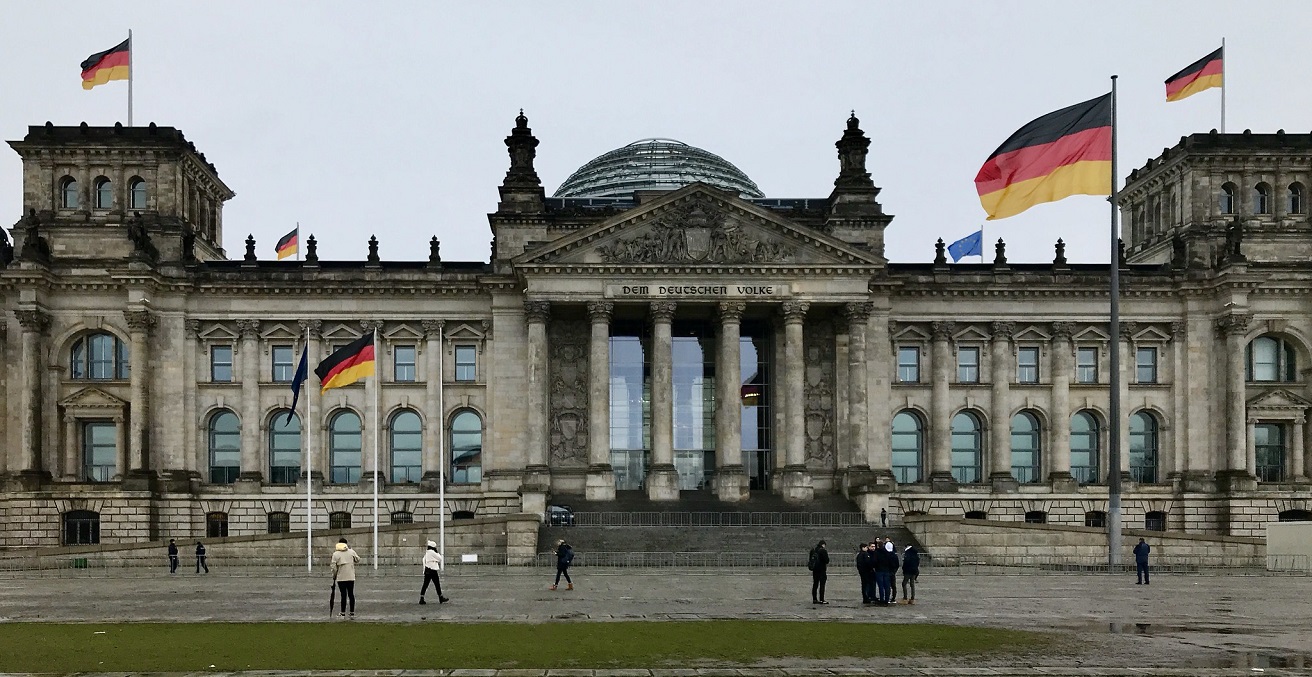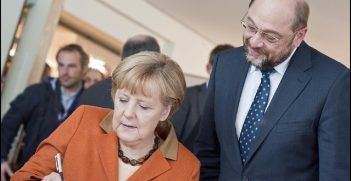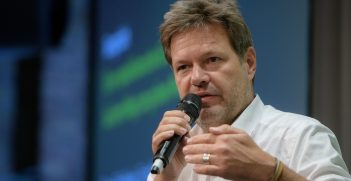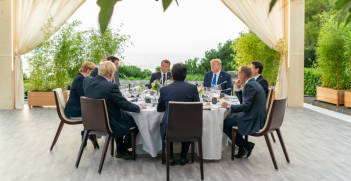German Election: What Comes After Angela Merkel?

On 26 September, the German public will go the polls to vote, and Angela Merkel will stand down as chancellor after 16 years. What is next for Germany and its foreign policy?
It is already clear that Germany will continue to be governed by a coalition after the election, as it has been ever since the first post-war German government was formed. Even a grand coalition of the two main political parties – the Christian Democratic Union (CDU) and the Social Democratic Party (SPD) – is not unusual. Some pundits are predicting that the protracted coalition negotiations of the last election in 2017, when the CDU initially explored the possibility of other coalition partners but eventually ended up in a grand coalition with the SPD, may be repeated. If that happens, then Merkel may stay in office until December or beyond and overtake her mentor Helmut Kohl as post-war Germany’s longest serving chancellor.
During her long stint as chancellor, Merkel has made her mark on foreign policy, largely guiding her government’s approach herself, rather than relying on her foreign minister. Under Merkel, Germany took the lead during the euro crisis precipitated by the 2008 global financial crisis; often visited and increased trade with China; had a fraught relationship with Vladimir Putin but cooperated to build the Nord Stream 2 gas pipeline from Russia to Germany; and was described by Barack Obama as his most important foreign policy partner during his presidency. Merkel already told the rest of Europe in 2017 during Donald Trump’s reign that “the times, when we could totally really on others, have ended to a certain extent.” However, the botched withdrawal from Afghanistan a few weeks ago is seen by some German commentators as underlining the extent to which Germany remained the lapdog of the US, and to besmirch Merkel’s legacy.
But Merkel will probably be best remembered – both domestically and internationally – for her asylum policy and the words “wir schaffen das” (“we can do this!”). After what was labelled the “long summer of migration” in 2015, when an estimated 890,000 asylum seekers arrived in Germany, Merkel was chosen as “person of the year” by Time magazine and dubbed “chancellor of the free world.” Yet Merkel’s Willkommenspolitik (welcome policy) has since divided the German nation and was accompanied by a rise in right-wing populism. In the 2017 elections, the far-right political party Alternative for Germany (AfD) entered parliament as the third-largest party on a platform centred on opposition to immigration. Yet despite recent upheaval in Afghanistan, the AfD has not been able to mobilise fears around migration to the same extent this time around.
There are three possible candidates to succeed Merkel as chancellor: the conservative candidate Armin Laschet, Merkel’s replacement as leader of the CDU, Annalena Baerbock, the co-leader of the Greens, and Olaf Scholz, who is the SPD candidate. The embattled Laschet, who is trailing in the opinion polls and is seen to have performed badly in the three TV debates, was Merkel’s loyal ally when Merkel faced internal dissent in the CDU for her welcome policy, though he has since gradually distanced himself from her. At 40, the Greens’ Baerbock, who has not previously held office, is the youngest candidate, but after a promising start her campaign has been marred by proof of resumé inflation and accusations of plagiarism in her new book. The SPD’s Scholz, who has been Germany’s finance minister and vice chancellor since 2018, is seen as the most experienced of the three, and has won all three TV debates.
Other parties standing for election are Die Linke (the Left), a party that emerged from the ashes of the East Germany’s governing communist party in 2007, the AfD, and the free-market Free Democratic Party (FDP), which is hoping to be part of the next governing coalition. Several other smaller parties – ranging from a hip-hop party to a vegan and vegetarian party – are also running for seats but are unlikely to clear the five-percent hurdle required to enter the Bundestag.
The SPD overtook the conservatives in the polls in early September, with the latter falling to historic lows. As an apparent consequence, Merkel, who had previously promised to stay out of the campaign, appealed to the electorate to vote for Laschet in last week’s farewell speech to the Bundestag. She raised the spectre of a left-wing coalition of the SPD, the Greens, and the Left. Since her speech, Laschet and Markus Söder, the leader of the CSU party, the Bavarian counterpart of the CDU, who had been Laschet’s rival to be the conservative chancellor candidate, have doubled down on the dangers of such a coalition. They have underlined the danger posed by the Left, who wants to leave NATO, but also critiqued the SPD’s historical record, emphasising for instance that in the 1950s it had been opposed to both the alliance with France that formed the European Union and to joining NATO.
This reminder by Laschet and Söder of past divergencies in foreign policy belies the fact that the conservatives and the SPD’s current approach to foreign policy is very similar, and that the foreign policy of the Greens is not remarkably different either. Both the conservatives and the SPD would aim to continue Germany’s booming trade with China and are unlikely to be any more critical of the country’s human rights record than Merkel. Both parties would also sign off on the finished Nord Stream 2 gas pipeline from Russia becoming operational, while the Greens are opposed to the pipeline. And all the major parties believe in a strong EU, though the Greens have been more vocal about holding other member states – such as Hungary – to democratic principles.
German foreign policy under Merkel’s successor is likely to stay a similar course as it has for the last few years unless a left-wing coalition does eventuate, which is unlikely precisely because the Left wants to leave NATO.
Dr Brangwen Stone is a Lecturer in the Department of Germanic Studies at The University of Sydney.
This article is published under a Creative Commons License and may be republished with attribution.





